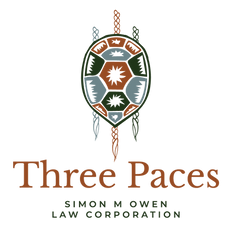Let it Rain
- organicfriend
- Feb 16, 2022
- 3 min read
Updated: Oct 27, 2023

A friend and I were talking the other day about plumbing. I was describing how the legal work I’m currently doing for Indigenous communities often involves the very unglamorous business of collecting property taxes, implementing fiscal management acts, updating employment policies, etc etc. These are the laws that work under the surface of the ‘big issues’ like land title and treaty rights, enabling people and their governments to borrow money, build infrastructure, and generally uphold their chosen functions fairly, efficiently and, within the bounds of agreed-upon rules, freely. It’s a vision of good governance set forth in Indigenous-led umbrella institutions like the First Nations Finance Authority, the First Nations Fiscal Management Board, the First Nations Tax Commission, and the First Nations Lands Advisory Board, among others (who doesn’t love a good umbrella?).
There are powerful arguments in favour of overarching laws which provide First Nations with own-source financing tools, and taxpayers and investors with certainty about how these laws will apply to protect their interests. But while these laws and their oversight and advisory bodies promote a kind of self-governance that is far more richer and robust than that available under the Indian Act, and effectively empower (some) First Nations to establish much needed revenue from and stability on their reserve lands (these bodies largely have nothing to say about authority and governance regarding non-reserve Indigenous territories), they also limit the breadth of options and possibilities that diverse societies might reasonably choose to uphold within their own legal orders.
One of these limitations arises with the form of government itself. As a recent critique of the First Nations Fiscal Management Act (FMA) has pointed out, “the FMA sets out the right to make decisions … but not the authority to establish the form of government that will make those decisions”. Band Councils, variously elected under the terms of the Indian Act, the First Nations Elections Act, or a Nation’s own (but Canada-approved) community/custom election system, remain the only entities capable of exercising authority in respect of their Nations’ finances and property. Perhaps, in regard to the parcels of land that Canada has deigned to “reserve” for Indigenous collective self-hood and self-governance, this is as it must be. But, if we are serious about decolonizing, we must learn how to make space for the possibility – and the reality – that Indigenous ways of governing – governing land, governing relationships, even governing real property taxation – are not monolithic, and should not necessarily be defined and constrained by umbrella bodies, even those that are Indigenous-led.
Everyone deserves good governance, just like everyone deserves sanitation systems that keep poo out of one’s drinking water. But like my wise friend suggested, not all plumbing has to be the same ("some people like composting toilets!"). As we take these wobbly steps towards a world many of us have spent the last 150 years forgetting how to imagine, we need to unbuild and rebuild in ways that support the fact that, for example, Tsimshian wil’naat’ał (matrilineally-related groups of laxyuup (territory)-owning wuwaap (house groups)) will probably make substantively different governance choices than, for example, Haudenosaunee clan mothers and chiefs. Each could manifest authoritative, accountable, Indigenous self-governance. Neither could likely be anticipated - much less standardized - by a single piece of enabling legislation.
While there’s a definite (and, if one is a control-minded policy wonk, definitely terrifying) aspect of uncertainty to what true decolonization is calling for, I do prefer to trust in the capacities of societies with thousands of years of experience taking care of themselves and their territories, rather than the promises of those who (yet again) expect to sell a one-size solution.


Comentários